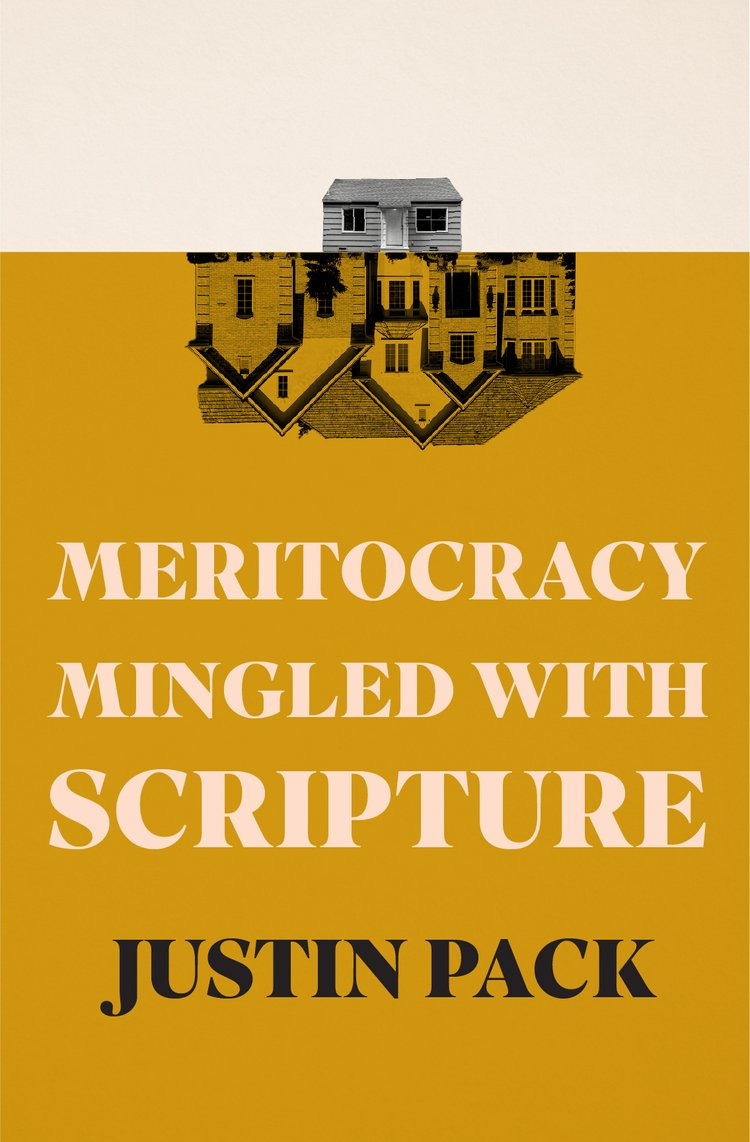Meritocracy Mingled with Scripture
by Justin Pack
Meritocracy and the gospel are fundamentally incompatible. Unfortunately, meritocratic ideas are currently being mingled with scripture, infiltrating language, colonizing moral self- and social- understanding, and radically deforming Christianity. Meritocracy has an attractive explanatory power and a great hold on the contemporary moral imagination in many places. For many, meritocratic ideals shape their sense of justice, moral order and self-worth.
But meritocracy results in a critical denial of grace, the justification of inequality, and tends toward an unhealthy atomism. Wealthy members of congregations that live in large houses with much more than they need, sit through Sunday school in the same room as poor families that struggle to make ends meet. Rampant inequality is omnipresent in modern society. Large, gated communities sit next to shanty towns, ghettos, and apartments. Our cities are divided into palpably different neighborhoods, schools suffer from inequal funding, unpaid, exploited workers are everywhere. Blinded by meritocracy, many contemporary Christians think this is the way it should be.
We must recover the logic of grace, the demands of social justice and ideals of Christian communism. We must resist the temptation to slip back into unpolitical living and the illusion that we can live the gospel without politics. We must feel deeply that we “rob the poor because of [our] fine sanctuaries; [we] rob the poor because of [our] fine clothing” (2 Nephi 28:13). We must feel the oppressive injustice and inhumanity of our exploitative, atomistic world devoted to the accumulation of capital.
This book is an engaging and thought-provoking exploration of the ways that the ideal of meritocracy (aka The American Dream) has infiltrated popular, political, and even religious thought and in the process has itself become something akin to its own religion. Dr. Pack does an impeccable job of weaving together philosophy, history, anthropology, sociology, and scripture in sophisticated and inspiring ways to show how deeply troubling neoliberal economic and political policies are for the planet and our moral values. It would be delightful to see this book reach a wide readership and provoke thoughtful discussion and analysis, even creative exploration, of how we can create a more just and equitable world.
—Angela M. Montague, PhD
Justin Pack’s book presents meritocracy as a sort of neo-Pelagian heresy that has infected much of American Christendom across the political spectrum. Rather than understanding the human person as a social being dependent on the community and God’s grace, we tend to see the illusion of self-made individuals who are rewarded or punished based on their own private efforts. While Pack draws from LDS scripture, his argument remains thoroughly grounded in the Old and New Testaments and the early Church Fathers and could just as easily have drawn from Roman Catholic social teaching. Indeed, American Catholics should be wrestling with the phenomenon Pack describes, as we try to reconcile the American dream with the preferential option for the poor and vulnerable and the universal destination of goods.
Pack’s book stands and the intersection of sociology, theology, and philosophy, but is written in a manner that should make it a wonderful addition to any undergraduate or graduate level moral theology course. I am already drawing from it in my high school Catholic Social Teaching classes.
—Jeremy Flaherty, PhD
All is not well in Zion, nor can it be as long as the Saints fail to wrest their theology from the all-pervasive logic of do-it-yourself “meritocracy.” Justin Pack’s little book packs a big punch—a voice from the wilderness that ought to humble Latter-day Saints and other Christians who (against their own strongly-worded scriptures) associate God’s favor with hard work and material prosperity
—Dennis C. Wendt, PhD


